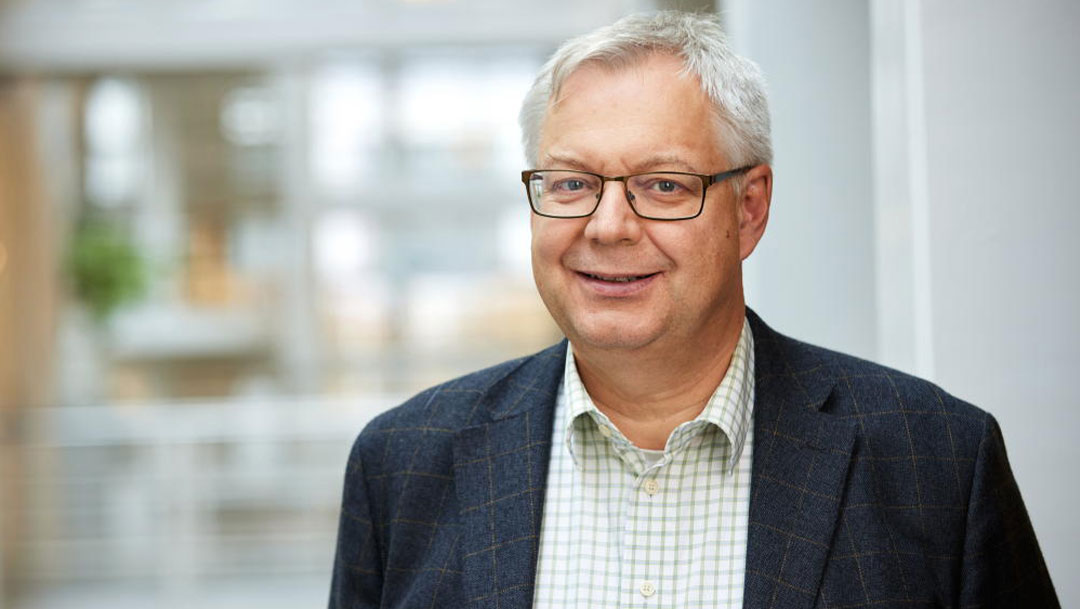Project from EECS gets funding from Vinnova
Interview with Ingo Sander

The project Early Bird, where the KTH activities are led by Ingo Sander, Professor in Electronic Systems Design, receives funding from Vinnova. We have spoken to Ingo about what this will mean for them and how it will benefit the Swedish industry.
Hi, Ingo. Please tell us about the project.
"The project is called "EARLY BIRD - Seamless System Design from Concept Phase to Implementation". Its coordinator is Saab, and the partners are Ericsson and KTH. It has been accepted within the Vinnova program "Advanced and innovative digitization".
"It is a good example of the good collaboration between Saab, Ericsson and KTH within the CASTOR centre, where the collaboration began with a CASTOR seed project."
"Through CASTOR, we started a seed project which allowed us a six-month initial pre-study, which offered excellent discussions with Saab and Ericsson. We wrote the proposal within the pre-study – and Vinnova approved it."
Who benefits from this?
"The Swedish industry will profit from a successful project since they can make better decisions in an early design phase. Also, the project follows the correct-by-construction vision of the preceding projects CORRECT, TRANSFORM and PANORAMA. The final systems will perform better, and Early Bird will reduce the design costs due to a lower need for tests and verification.
What does the support from Vinnova mean for you?
"My group works in the area of embedded system design methodologies, and to prove that our ideas are correct, we need to validate our ideas in an industrial setting. Thanks to this project, we have two industrial companies within different industrial domains who work with us to develop and validate the methodology and associated tools. We are delighted to receive this trust from the industry. Saab and Ericsson are world-leading companies; it's the best feedback we could get!"
"It's a fantastic opportunity to be able to discuss with the industry who, in the end, will be the customer of our solutions. I'm lucky to be able to research in what I believe in and to get valuable feedback from leading industry in different industrial domains."
Why do you think you got this support?
"For several reasons. We had earlier projects before from Vinnova, so it's not the first project within this area. The project profits from the long work on ForSyDe (Formal System Design), a design methodology for embedded systems that I developed as part of my PhD thesis. It has a sound formal foundation in the form of the theory on models of computation and covers the whole design process from specification model to the final implementation."
"The other reason is that we have had a lot of discussions within the CASTOR software research centre. CASTOR has allowed us to have deep research discussions with industrial partners through the instrument of seed projects. We could do a pre-study to discuss their expectations. I have used these seed projects several times. They have always given me the possibility to discuss the research with the industry. CASTOR provides an excellent environment for doing that."
"Also, I always aim to follow my long-term vision on system design. I have worked in the industry and seen how the industry does system design. When I started my PhD many years ago, I wanted to work on this topic. So, I have now followed this vision for more than 20 years, and I think I can say that I have a good understanding of the topic and its challenges. I think that played a major role since we work together with Swedish industry."
The partners Saab and Ericsson also comment on the project.
"Telecom systems are advanced systems at the forefront of technology, with high computing, reliability, and availability requirements. The ever-increasing demands on performance raise the level of complexity. Still, quality may not be compromised. This places new demands on development tools and methods to help manage this. Therefore, this collaboration with KTH and Saab is an excellent opportunity for us to contribute to and influence the method and tools community so that it may match these new challenges," says Leif Linderstam from Ericsson.
Ingemar Söderquist and Mats Ekman from Saab say;
"We believe that fundamental changes are needed in software design and verification methodology that guarantee full function and performance at first/each product deployment where no software update or bug fix is allowed.
We see this seamless methodology as one important enabler also for reduced development costs for new products.
We are happy for this opportunity to collaborate with KTH and Ericsson in a project to substantially improve the design, manufacturing, and verification of complex software in cyber-physical systems (CPS)."
